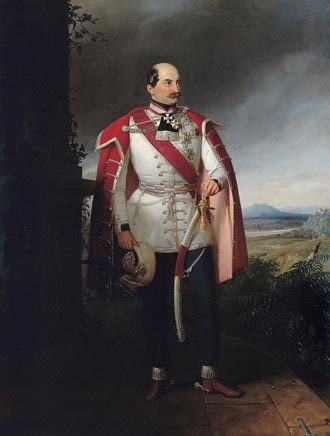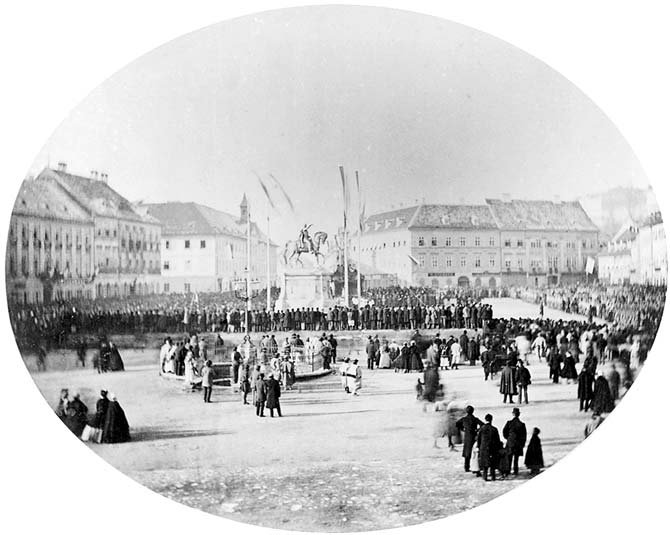Permanent Display 28. Ban Josip Jelačić
 One of the most important figures in Croatian history, Baron Josip Jelačić was on March 23, 1848 appointed by imperial decree Croatian Governor and General. At the same time, because he was a supporter of Illyrianism, the National Assembly unanimously elected him Governor of the Tripartite Kingdom of Croatia, Slavonia and Dalmatia.
One of the most important figures in Croatian history, Baron Josip Jelačić was on March 23, 1848 appointed by imperial decree Croatian Governor and General. At the same time, because he was a supporter of Illyrianism, the National Assembly unanimously elected him Governor of the Tripartite Kingdom of Croatia, Slavonia and Dalmatia.
Adhering to the Demands of the People, in a gubernatorial letter he abolished the feudal organization, summoned the Parliament of the country in Zagreb, and united Dalmatia with the Kingdom of Croatia and Slavonia.
On June 4 and 5, 1848, Zagreb saw the ceremony of the installation of the Governor. This was a majestic event, a ceremony that was truly worthy of the history-making deed. Seeing the 93 ceremonial coaches, the crowd of ecclesiastical and secular dignitaries, the cheering people, the Frenchman Count Edgar Corberon compared Jelačić’s entry into Zagreb with Napoleon’s into Paris.
The following day there was the installation, and the Ban’s oath, taken in St Katarina’s Square, in the presence of the national representatives, the magnates, the clergy and masses of the people. The ceremony was continued in the Church of St Mark and in the Governor’s Palace, after which there was a theatre performance and a general national celebration.
In that tempestuous year of 1848, Jelačić fought on the side of the Empire, beat the Hungarian insurgents, fought for the good of the Croatian people and for a just position for the Tripartite Kingdom in the Monarchy.
After his campaigns, he returned to Zagreb and lived in the Governor’s Palace, often visiting his parents’ house which was very close in Freudenreich St.
In 1854 he became a count, and lived alternately in Zagreb and on his estates in Novi Dvori near Zaprešić.
Overcome by sickness, he died in Zagreb on May 20, 1859.

Zagreb and Croatian paid some of their debt to their Ban by renaming the central city square, Harmica, Square of Ban Jelačić, in 1848, and by erecting an equestrian statue to the legendary hero Ban Jelačić in the square that bears his name in 1866.
Ivan Ružić

